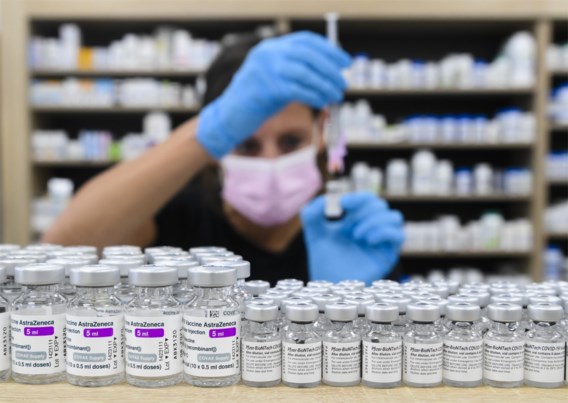Coronavirus vaccines not only reduce the risk of infection, but also make vaccinated people less contagious if they do still get infected, confirms a study by Sciensano, the Belgian health institute, which was published in the international journal Vaccine.
The findings date from the period before the Delta variant became dominant in Belgium.
Between 25 January and 24 June 2021, Belgium made no distinction between (fully) vaccinated and non-vaccinated people after having a high-risk contact.
Whether they were fully vaccinated, partially vaccinated or not vaccinated at all, after a high-risk contact, everyone had to quarantine and have two PCR tests carried out.
Sciensano is now using those test results and contact tracing data to determine how well vaccination protects against infection with the coronavirus.
Vaccinated people less prone to infection after high-risk contact
The researchers compared the risk of a positive test in 8,000 vaccinated high-risk contacts with that in 282,000 unvaccinated high-risk contacts.
The results showed that complete vaccination with an mRNA vaccine (Pfizer or Moderna) reduced the risk of infection by 74% to 85%. Protection was clearly better after complete vaccination than after only 1 dose.
Additionally, the study took into account all positive tests, including those who showed no symptoms, which is why the degree of protection against the coronavirus here is somewhat lower than in studies looking into protection against (severe) symptomatic illness.
Fully vaccinated people with a positive Covid-19 test less likely to transmit virus
The researchers also analysed infections between 990 people who were still infected with the virus after full vaccination (called 'index cases') and their unvaccinated high-risk contacts, to study if people who were still infected after being fully vaccinated were just as contagious as unvaccinated infected people.
The vaccinated index cases passed on the virus 52% to 62% less often than unvaccinated index cases, the results showed.
Both types of protection can also occur together, Sciensano stressed.
"If both the index case and its high-risk contact have been fully vaccinated, there are about 90% fewer infections than in contacts between unvaccinated people."
Alpha vs Delta variant
It is important to keep some precautions in mind, despite these positive results, as this research was carried out during the period when the alpha variant was dominant in Belgium.
"It is possible that protection against the delta variant is less effective," Sciensano underlined. "However, the researchers have no concrete information on this yet."
Additionally, the researchers could not make reliable statements on the protection provided by the AstraZeneca and single-dose Johnson & Johnson vaccines, as only a limited number of people had been fully immunised by the end of June.
Sciensano also emphasised that infections between vaccinated people can still occur, and that it is therefore important that everyone follows the current rules.

